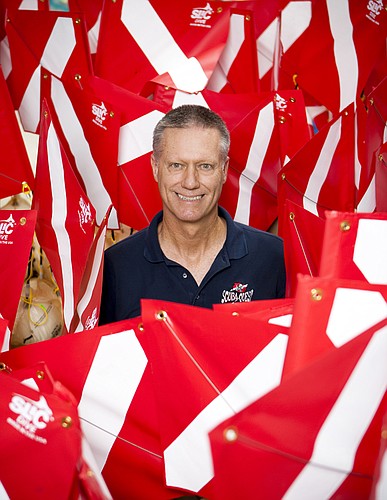- December 13, 2025
-
-
Loading

Loading

In 2003, when his beloved scuba diving business was as its zenith, Al Jeffrey had an executive epiphany: “I had become a human memo.”
A scuba diver who turned his passion for the sport into a $5 million-per-year enterprise with 15 stores across Florida, Jeffrey had prided himself on communicating face-to-face with his employees.
But there was that day — in Cape Coral or Stuart, or maybe it was Orlando — where Jeffrey realized the company he ran with his business partner Jim Wilheim, Scuba Quest, had gotten too big. Gone were the days when Jeffrey could spend a week in each shop with a manager, talking about product placement and dive training techniques.